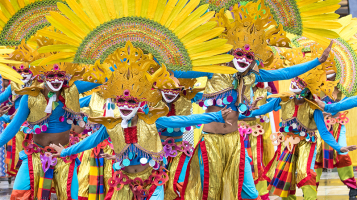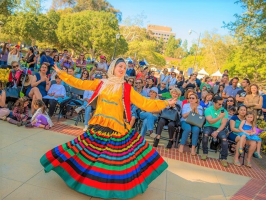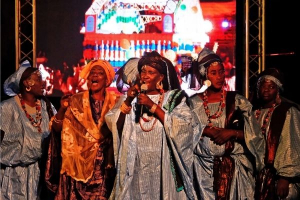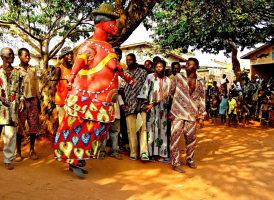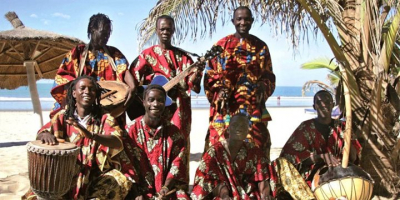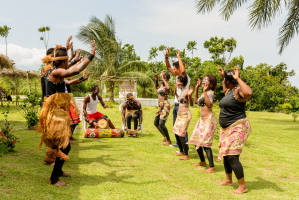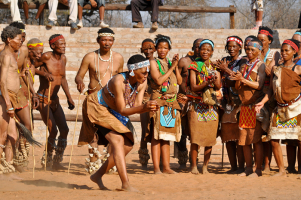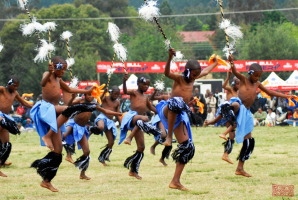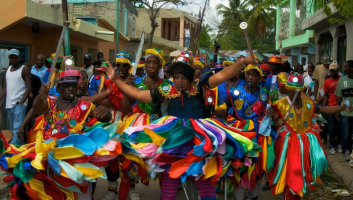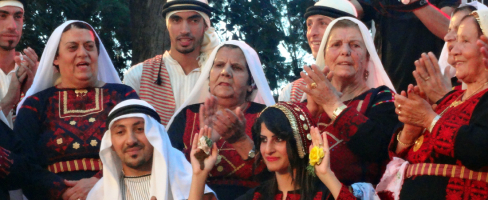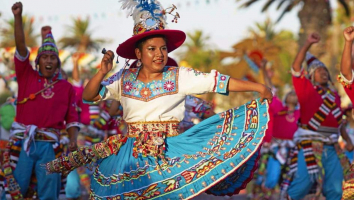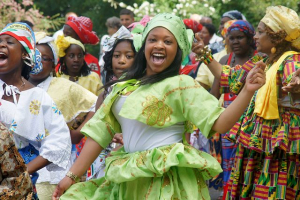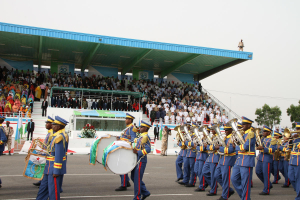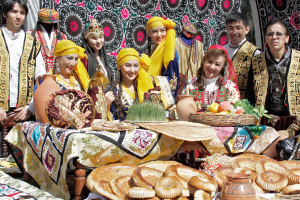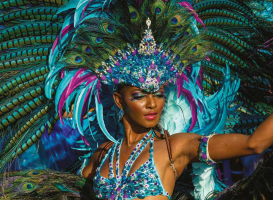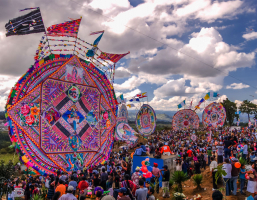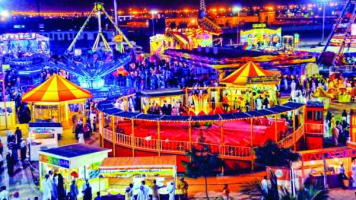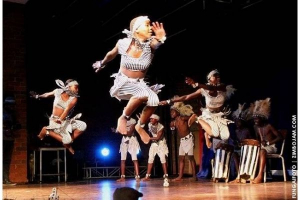Top 10 Most Famous Festivals in Poland
Poland is a wealthy and important European country in the Central European region. Poland, as the sixth most populous country in the European Union, recognizes ... read more...the need of preserving its rich cultural heritage today. Poland's culture, festivals, and traditions are all quite confluent with the Latin, German, and Byzantine cultures, thanks to its location between various Latin European countries on one side and Germany on the other. Here Toplist brings to you the most famous festivals in Poland.
-
Around the world, New Year's Eve is greeted with great excitement and joy. Similarly, in Poland, people get together to plan exciting events, family gatherings, and parties, among other things. However, Krakow, Poland's capital, has much more to offer than typical home parties. The RynekGlowny arena in Krakow hosts Poland's largest open-air New Year's Eve party.
Around midnight on New Year's Eve and New Year's Day, fireworks are lit and seen in the skies above numerous Polish cities. At this time, many people toast drinks to bid farewell to the previous year and welcome the New Year. It is also usual to send New Year's greetings to friends and relatives. It is also usual to send New Year's greetings to friends and relatives. At midnight, the event culminates with a stunning light and laser show. Sleigh rides, bonfires, dances, balls, parties, and other forms of entertainment are also common ways to commemorate the New Year's arrival. Sausages or bigos are included in the menu (a Polish stew).
Although New Year's Eve is not an official public holiday in Poland, it is a busy season for many shops, restaurants, and other commercial establishments. As many people travel to attend festivities or spend time with family and friends, traffic and transportation services in some regions of larger cities may be congested.Location: RynekGlowny, Krakow &Tauron Krakow Arena, Krakow.
Held On: 31st December
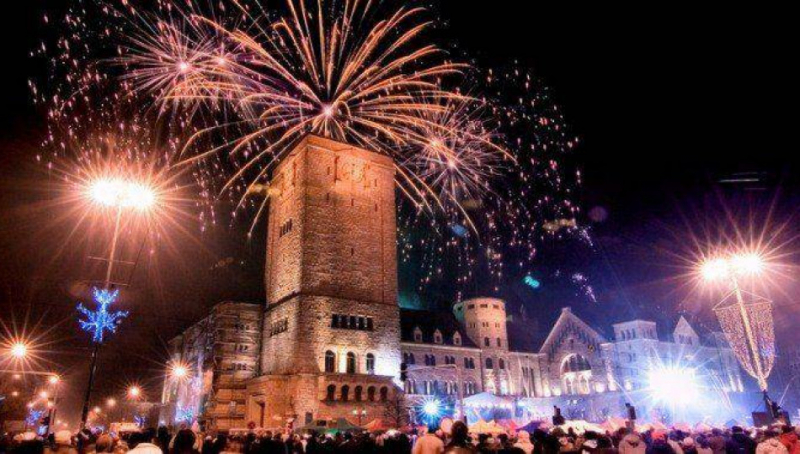
Photo: careersinpoland 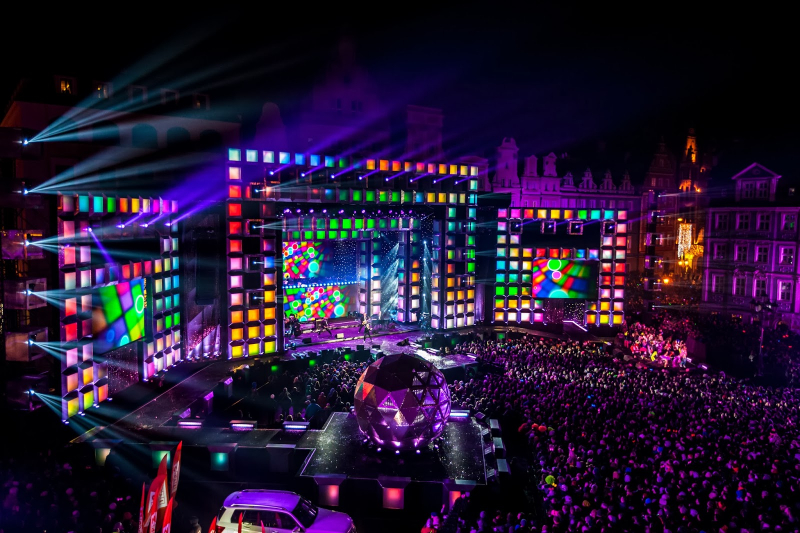
Photo: aram -
Poland is a country rich in traditions and customs, particularly those associated with the Catholic faith. Easter is one of the most famous festivals in Poland. For many people, Easter begins a week before on Palm Sunday, continues through Holy Week, Easter Saturday and Sunday, and ends on a somewhat damp Easter Monday.
The triumphal arrival of Christ into Jerusalem is commemorated on Palm Sunday. It commemorates the end of Lent and the start of Holy Week, during which the faithful prepare for Easter celebrations. On Palm Sunday, churches are decked with bright "palm trees," which are usually built from willow branches and decorated with evergreen plants. Some of these palms can grow to be more than 19 feet tall.
Every year on Palm Sunday, a unique celebration takes place in Lipnica Murowana's market square, where locals compete to produce the largest plaited palm. The difficulty of carrying such a large, colorful construction, which stands at an average height of 65 feet.
Various spiritual and traditional celebrations take place throughout Holy Week. Polish households clean their homes in preparation for Easter by doing spring-cleaning, shopping, and cooking traditional Easter meals. Making Pisanki is one of the most colorful traditions, but it also demands practice and talent. Hand-painted and elaborately adorned, this Polish rendition of a traditional Easter Egg is popular.
Baskets of traditional Easter delicacies are taken to church on Easter Saturday to be blessed. Following its blessing, the dish is eaten as part of the Easter Sunday feast known as the Easter Breakfast. Hard-boiled eggs, cold cuts, smoked meats, vegetable salads, babka, and other foods make up the Easter Breakfast.
Smigus Dyngus, or Wet Monday, is a Polish family holiday commemorating the ritual of individuals pouring water on each other on Easter Monday. It's best to presume that no one is safe from the Smigus Dyngus tradition on this day!
Location: RynekGlowny Central Square, Krakow.
Held On: April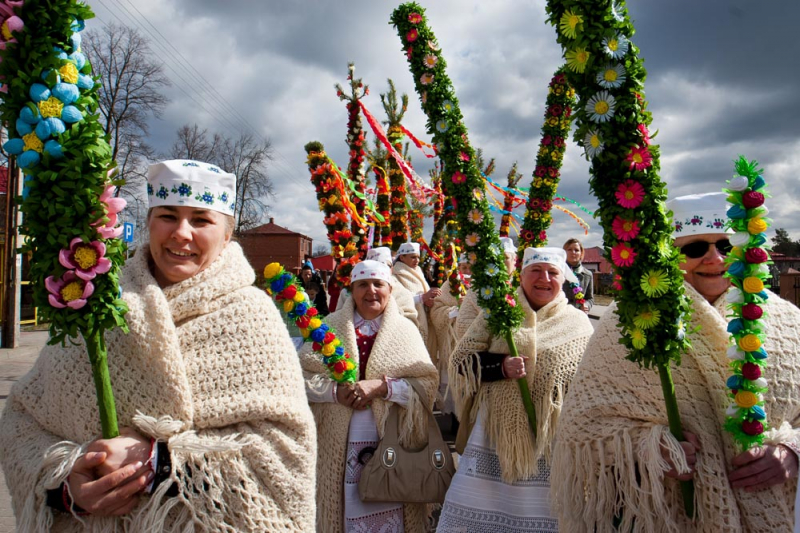
Photo: culture 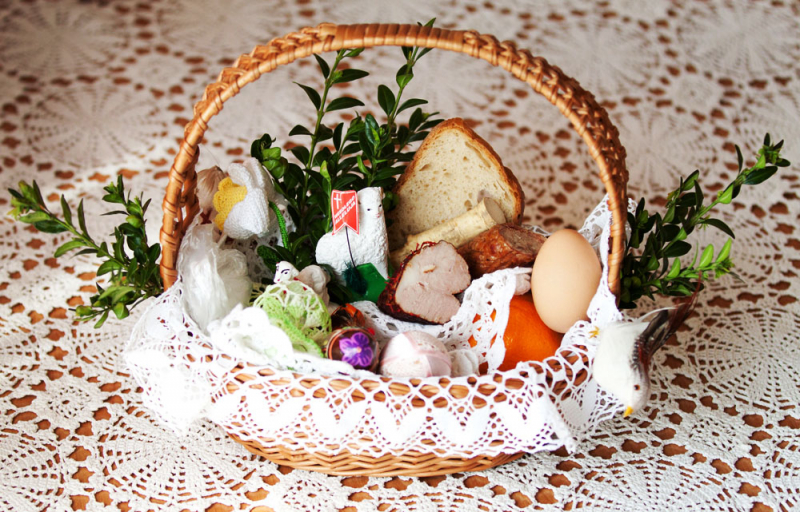
Photo: culture -
Juwenalia is a Polish higher education students' holiday that is traditionally held in May, just before summer examinations, but can alternatively be celebrated in early June.
The first Juwenalia was held in Cracow in the 15th century. Juwenalia are observed in all Polish colleges, with varying names depending on the institution or locality. They are known as Medykalia at medical academies and Ekonomalia in economic academies. They are known as "Kortowiada" at the University of Warmia and Mazury in Olsztyn, "Piastonalia" at the University of Opole, "Igry" at the Silesian University of Technology in Gliwice, "Neptunalia" at Gdask University, and "Bachanalia" at the University of Zielona Góra.
The triumphal march of colorfully clad students kicks off Juwenalia. The participants march from a college campus to the city's main square, when the mayor of the city hands the students the keys to the city's gates in a symbolic gesture. The three days are free of lectures and jam-packed with concerts, parties, sporting events, and beer consumption.
Location: From a University to the Central Square of the city
Held On: Between May – June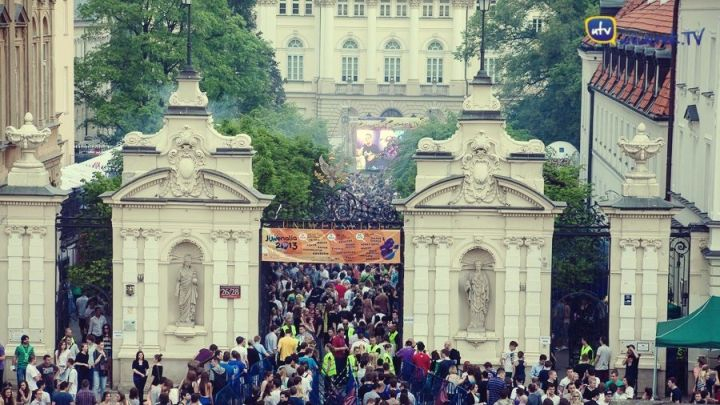
Photo: tvpworld 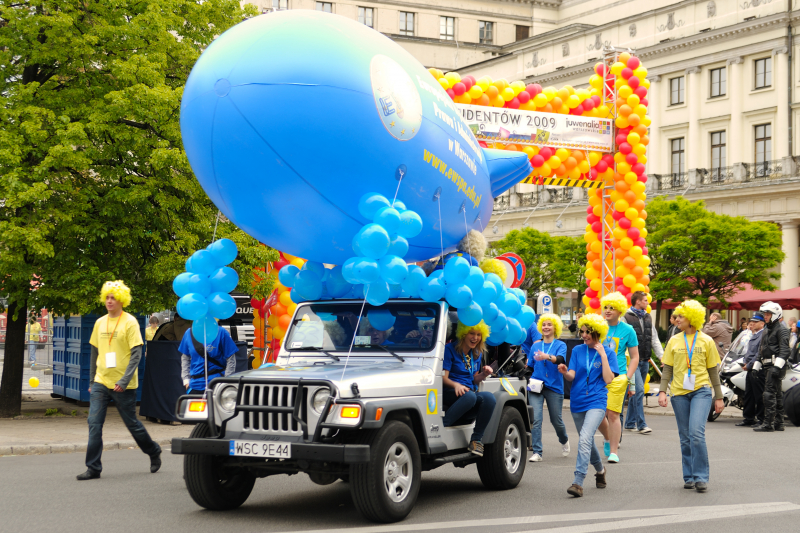
Photo: commons.wikimedia -
Baltic Days Of Jewish Culture is a two-day Jewish cultural festival held in Gdask, Poland, every year. The Baltic Days of Jewish Culture began in June 1999 with the goal of instilling Jewish ideals and preserving Hebrew culture through Hebrew music, Hebrew literature, Hebrew poetry, and other forms of Hebrew art. This is a two-day event in Gdansk that includes a variety of concerts, Hebrew classes, seminars, and exhibitions, as well as public meet-and-greets with Hebrew authors and poetry readings. The Social and Cultural Organization of Jews in Poland organizes and manages the two-day festival.
Location: City of Gdansk, Poland.
Held On: First week of June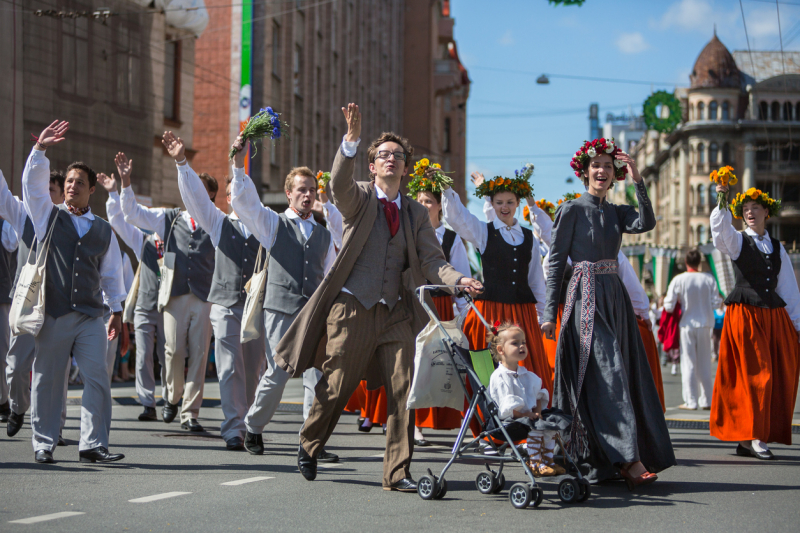
Photo: jaywaytravel 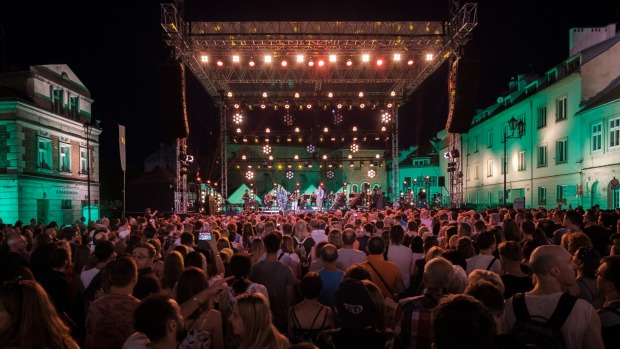
Photo: traveller -
Wianki is a Midsummer Solstice Festival that focuses on the launching of flower wreaths into the water. It is a pagan rite associated with fertility, ceremonial purification, and fortune-telling in Poland. Jumping over bonfires, fortune-telling, and couples walking through the forest looking for some kind of magical fern were among the ancient people's Wianki celebration rites. The way a wreath floats on a lake, down a river, or down a stream is thought to predict which girl will be married soon. Every year on the 23rd of June, Wianki is held all throughout Poland as part of the Kupala Night (Noc Kupay) celebrations. The event was first held along the Vistula River, and it is still held there today. It is one of the most famous festivals in Poland.
Wianki is also the name of a well-known annual festival held near Krakow's Wawel Hill. Krakow's event is a major commercial festival featuring music, pyrotechnics, bonfire jumping, and, of course, wreath-floating down the Wisa river.
Location: The Banks of River Vistula along Krakow city.
Held On: Yet to be announced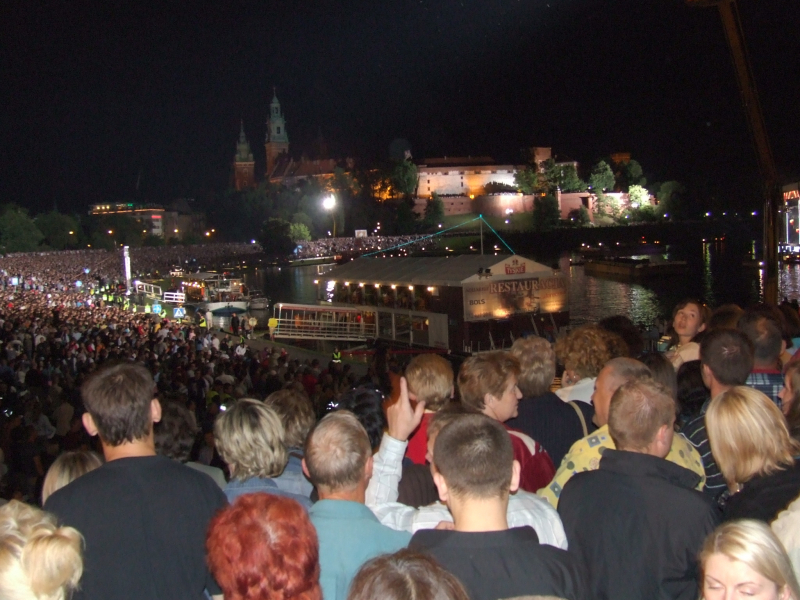
Photo: wikipedia 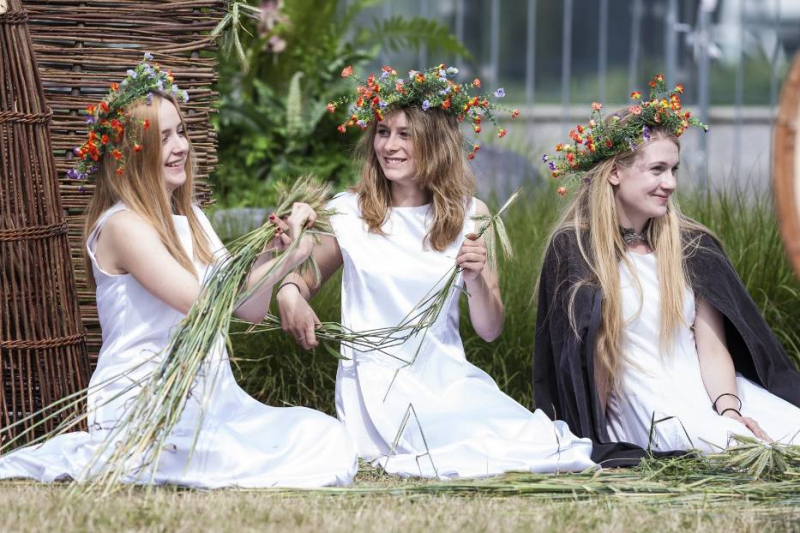
Photo: lamus-dworski.tumblr -
The Jewish Culture Festival in Kraków is an annual cultural event hosted by the Jewish Culture Festival Society, which was founded in 1988 in the once-Jewish quarter of Kazimierz by Janusz Makuch, a self-described meshugeneh ("crazy person") who is captivated by all things Jewish. The festival's major purpose is to teach people about Jewish culture, history, and faith (Judaism), which flourished in Poland prior to the Holocaust, as well as to familiarize them with modern Jewish culture, which is mostly developed in the United States and Israel, and to entertain them.
Each event lasts nine days, from Saturday through Sunday, and takes place in late June or early July. Concerts, exhibitions, plays, talks, workshops, tours, and other events are held throughout this time. The opening concert, held on the first Sunday of the festival, and the closing concert, held on the last Saturday of the festival, are the two most prominent performances. The former is normally hosted in one of Kazimierz's seven synagogues and involves cantoral music; the latter is always held outdoors, at Ulica Szeroka, the Jewish district's major street, and features klezmer music. In between, there are a slew of other shows, most of which feature klezmer music in some form.
Traditional Jewish cuisine, dance, music, calligraphy, and other facets of Jewish culture are all covered in the workshops. Numerous seminars teach more about Jewish culture as well as subjects relating to the Holocaust. There are additional exhibitions of Jewish art, particularly paper-cut work. The festival's schedule also includes tours of Kazimierz's synagogues and cemeteries, as well as the old Nazi-era Kraków Ghetto in the nearby Podgórze area. Gentiles are welcome to witness or participate in Jewish prayers at the synagogue during the festival.
The Jewish Culture Festival brings together musicians, singers, choirs, jazz musicians, and dance teachers from all over the world to celebrate Jewish culture. The event emphasizes a wide range of Jewish music forms, including synagogue song, hasidic, classical, Jewish folk, and klezmer, which is currently particularly popular in Kraków.Location: Kraków
Held on: June or July
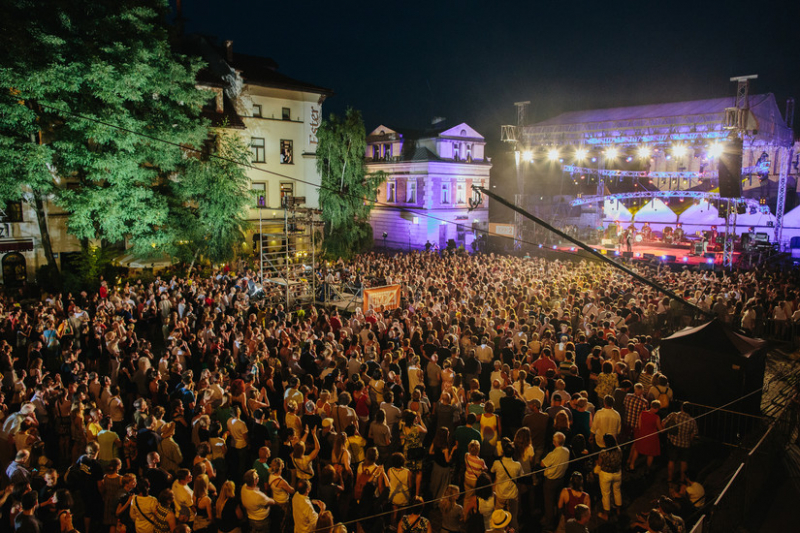
Photo: inyourpocket 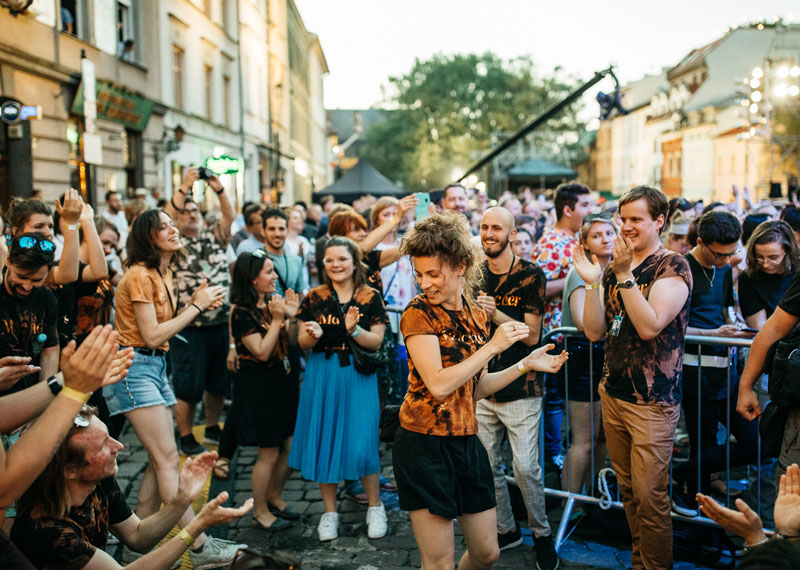
Photo: jewishfestival -
Saint Dominic's Fair, together with Weihnachtmarkt and Oktoberfest, is one of Europe's largest commerce and cultural open-air events, held in Gdask's Main City, the city's representative section. The history of this fair may be traced back to 1260 A.D. The fair features a big market area with vendors selling gorgeous accessories and ornaments, as well as food and other products. The festival is not only a trade show, but also a cultural event with musical performances and theater performances.
Each year, the number of stalls grows, and the Fair's schedule is filled with cultural and entertainment events. Numismatic and philatelic collections, as well as handicrafts, haberdashery, rare clothing, and antiques, can be found on the stalls. All of these items, as well as many others, may be purchased at the famed flea market. Unfortunately, as with other comparable fairs around the world, some counterfeit products are sold. It used to be available to acquire paintings by Kossak, Witkacy, and a slew of other well-known painters. The majority of merchants and collectors, on the other hand, are honest and treat guests with respect. They come from all around Poland, as well as neighboring nations such as Lithuania, Latvia, Germany, Austria, Sweden, and even places as far away as Israel and Uzbekistan. All of the international vendors sell products and souvenirs that are unique to their culture.Location: Old Town ‘Andrew V’ of Gdansk, Poland.
Held On: July 30th (saturday) to August 21st (sunday)
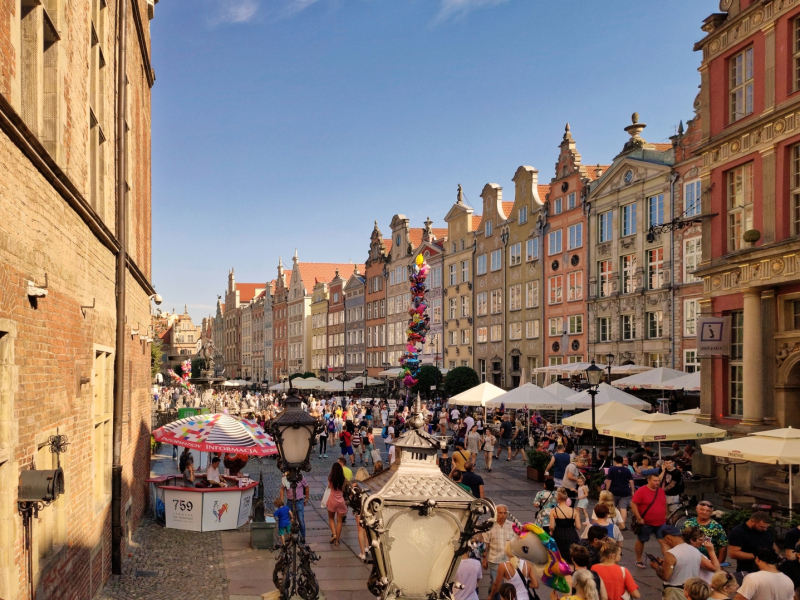
Photo: exploregdansk 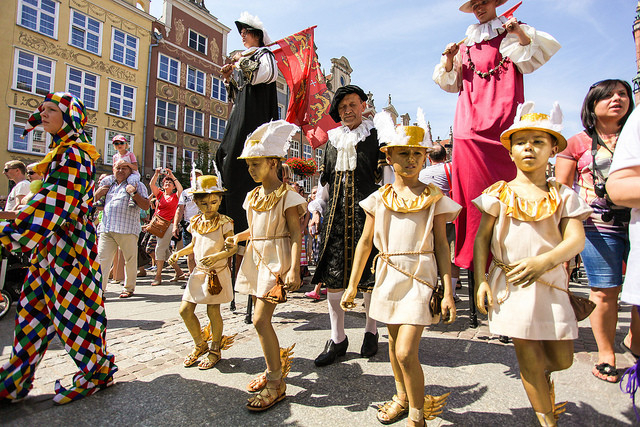
Photo: inyourpocket -
The Zielona Góra Wine Fest is an annual wine festival held in Zielona Góra, Poland. The custom dates back to the harvest of grapes from nearby vineyards, which were subsequently fermented into wine. In October 1852, the inaugural celebration was held. It now lasts nine days and begins in the first or second week of September. Get the attention of many people, this is definitely one of the most famous festivals in Poland.
On a Saturday, the activities begin with a procession through the city center. It is preceded by a symbolic ceremony in which the Roman wine god Bacchus and his Maenads are presented with the town's keys by the local officials. Several cultural and sporting activities take place over the course of the nine days, with the International Festival of Folklore being one of the most notable. Music concerts and theater meetings (including street theatre) are also available. During the festival, the town center transforms into a large marketplace, with a distinct street dedicated to the antiques market.Location: Zielona Gora Town, Poland.
Held On: September (Every Year)
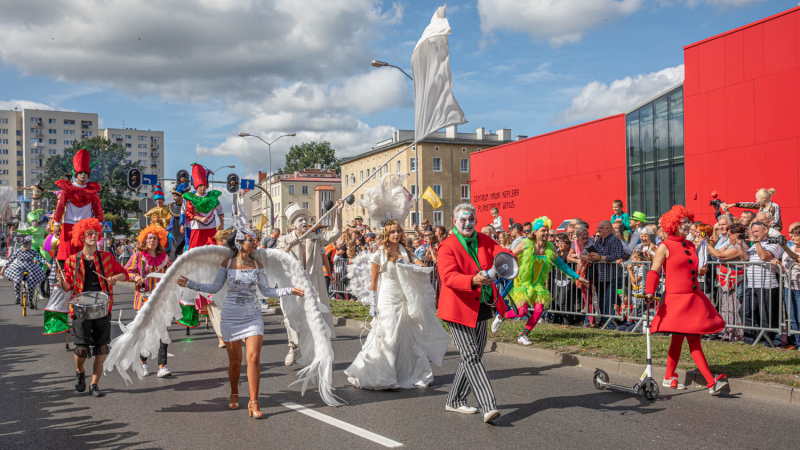
Photo: finallylost 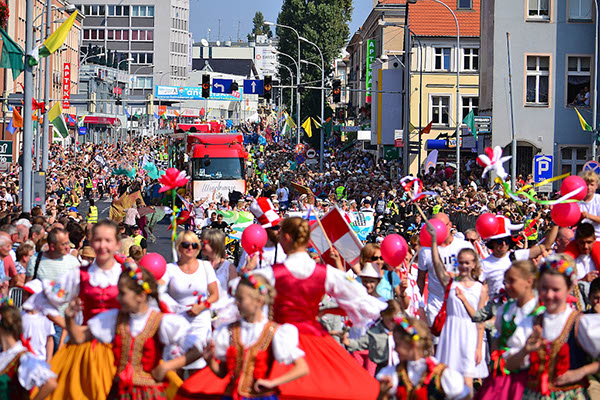
Photo: polandsite -
On November 1, Poland celebrates All Saints' Day, a national holiday honoring the saints. It's also known as the Day of the Dead, because many people commemorate their departed loved ones on this day.
In numerous towns and cities around Poland, special church services are organized to remember the saints. In Poland, many people place flowers and candles on the graves of deceased family members and friends. This custom continues until All Souls' Day on November 2, which is not a national holiday.
Schools, banks, government offices, and most private companies in Poland are closed on All Saints' Day, which is an official public holiday in Poland. In Poland, public holidays are prohibited from being traded. Those planning to go by public transportation on holidays should check with the transit authorities to see if there have been any modifications to timetables.
Location: Graveyards in all cities of Poland namely Krakow, Gdansk, Poole, Olsztyn, Gliwice, etc.
Held On: November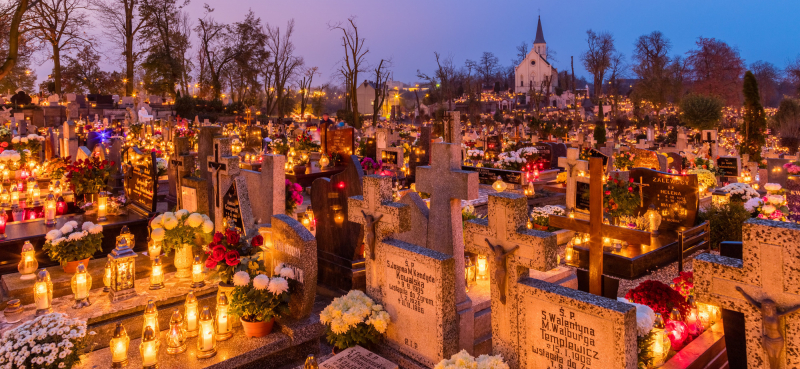
Photo: inyourpocket 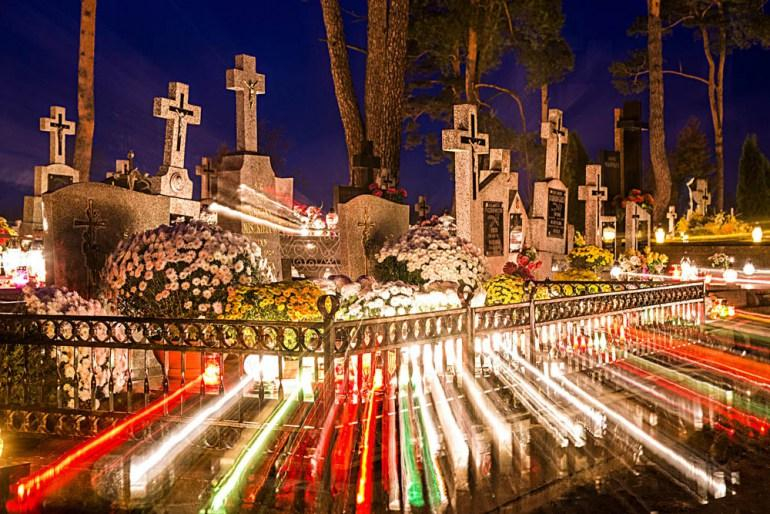
Photo: culture -
In Poland, Christmas is seen to be a wonderful period when all the animals that have been wronged by humans can speak to them and ask forgiveness. The day after Christmas is known as Saint Stephen's Day, and it lasts for around 10-13 days till the end of the year. People attend church services and then go on a ceremonial horseback ride to get the horse's blessings. The stoning drinking rite is also practiced by certain Christians.
Saint Stephen's Day, also known as Saint Stephen's Feast, is a Christian saint's day commemorating Saint Stephen, the first Christian martyr or protomartyr, and is observed on December 26 in Western Christianity and December 27 in Eastern Christianity. The Eastern Orthodox churches that follow the Julian calendar celebrate Saint Stephen's Day on December 27th, which corresponds to January 9th in the Gregorian calendar used in secular settings. Saint Stephen's Day is the second day of Christmastide among Latin Christian groups.
Location: Churches of all cities in Poland like Krakow, Pole, Olsztyn, etc.
Held On: December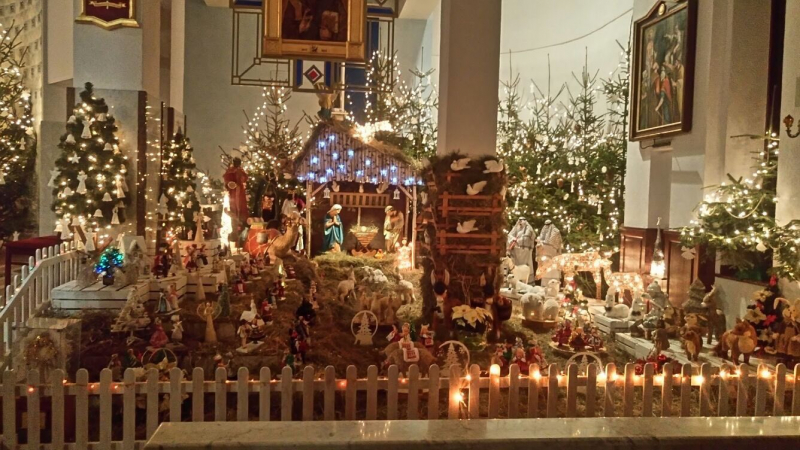
Photo: twitter 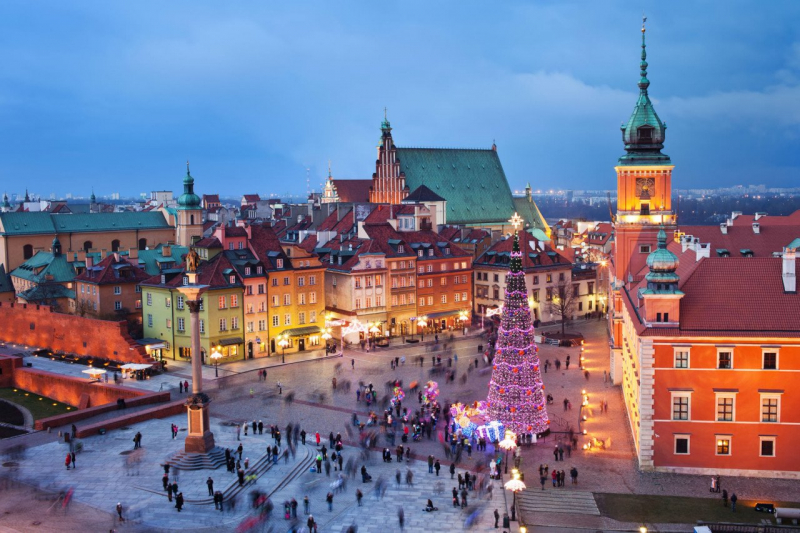
Photo: officeholidays












